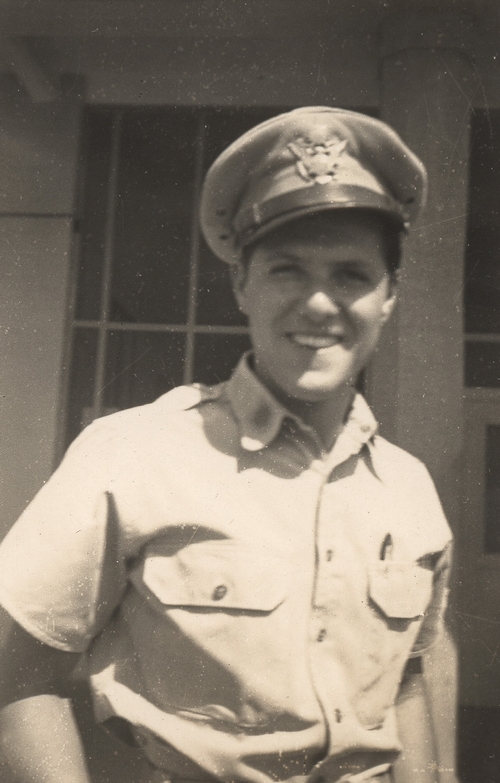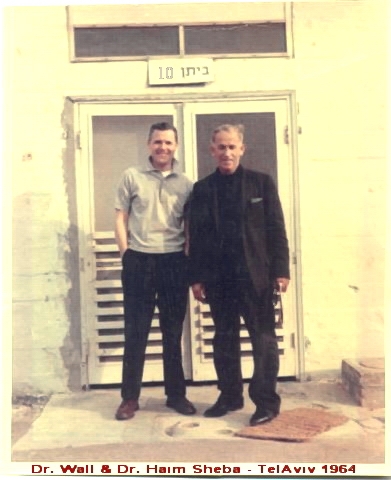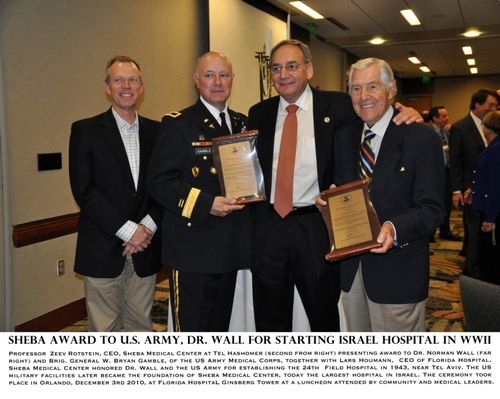US Army and American Doctor Honored for Establishing WWII Field Hospital that became the Sheba Medical Center
by Mark I. Pinsky, Orlando, Florida
A little-known chapter in U.S.-Israel relations was celebrated on Friday Dec. 3 in Orlando, Florida, when the U.S. Army and Dr. Norman Wall were honored for their participation in the establishment of a military field hospital during World War II which later became Israel's largest hospital, the Chaim Sheba Medical Center at Tel Hashomer.
The event took place at Florida Children's Hospital with the participation of Prof. Zeev Rotstein, CEO of Sheba, and Brigadier General W. Bryan Gamble, of the U.S. Army Medical Corps, representing the Surgeon General.
Wall was a medical officer with the U.S. Army in World War II when he was dispatched, along with the 24th Field Station Hospital, to establish medical facilities in Tel Aviv. At the time, the main threat was invasion from German and Vichy forces in the region. To support the Allied effort, the American hospital unit was sent to Tel Aviv in 1943, and later to other sites in the Middle East and North Africa.

The U.S. Army established a hospital, at a site first known as Tel Litwinsky, named after the hill looking over the city of Tel Aviv. The American military forces remained for about one year, when they handed the hospital over to the British command. But before the Americans left, the Army-in the person of Captain Wall-donated surplus medical equipment and supplies to the Haganah and the legendary physician, Dr. Chaim Sheba, who was treating patients in a crumbling Ottoman-era facility in Tel Aviv.
In 1948, with the founding of the State of Israel, Tel Litwinsky became an IDF hospital, headed by Prof. Sheba, Chief Medical Officer of the fledgling Israel Defense Forces. The site was renamed Tel Hashomer (meaning Hill of Guardians) by Israel's first Prime Minister David Ben-Gurion. Today, the renowned Sheba Medical Center at Tel Hashomer is both Israel's most comprehensive medical center and Israel's version of the U.S. National Institutes of Health.

"Few people, in Israel or the US, are aware that there were US military forces in pre-State Israel," said Prof. Zeev Rotstein, CEO of Sheba Medical Center. "We are deeply appreciative of the role the U.S. Army had in planting the seeds that later became our great hospital," he added. "And we are happy to give recognition to our longtime friend, Dr. Norman Wall, for his participation in starting the hospital, and for his continued support and direct involvement in Israel's medical achievements."
"With this honor, my professional life comes full circles" said Wall, 96. "It was my good fortune that the US Army decided to send our medical unit to Tel Aviv, and that I could be helpful to my Jewish colleagues in the Yishuv, (pre-Israel)," said Wall. "It was the beginning of my life's passion for Israel, its security and medical advancement."
Wall went on to a successful career in medicine, becoming president of the Pennsylvania Heart Association, among many other professional honors. But Israel and Jewish life were no less important. Israel has always been an important part of his life, visiting the country many time, and where he has children and grandchildren. He started a program training medical students from Israel at his hospital.
Sheba Medical Center and the Florida Hospital are discussing collaborative and exchange programs in robotic surgery and medical simualtion. "It will be a great legacy to what we started for these two great institutions to build cooperative programs," said the retired Orlando physician.









